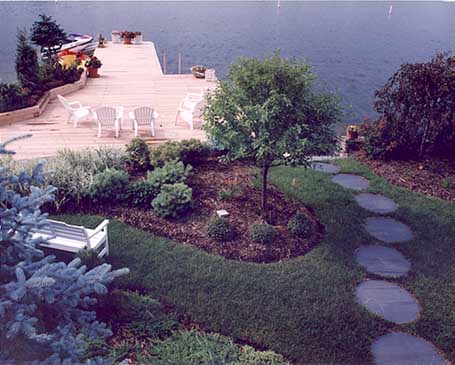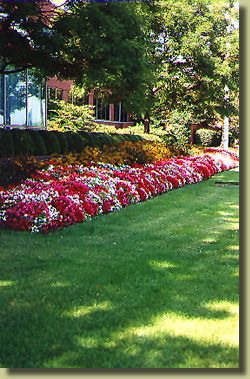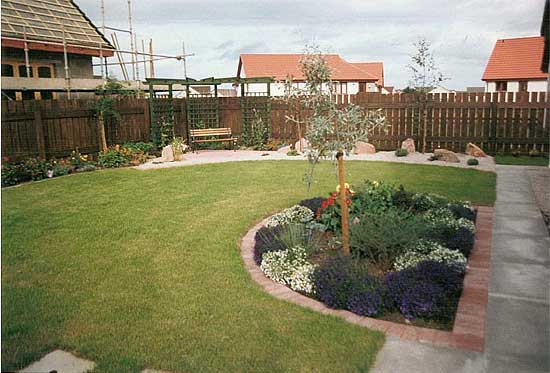|
As our perceptions about the use and value of water began to change in the later part of this century,
TRUSTED & RELIABLE SERVICES, INC. has developed new ideas about gardening. These new concepts
have allowed us to reduce water needs by altering the landscape.
The term given to this approach to gardening is called "Xeriscape". Xeriscape means "water
conservation through creative landscaping."

The principles associated with the concept of xeriscape include appropriate planing and design, soil
improvement, more efficient irrigation, practical turf areas, appropriate plant selection, use of mulches, and maintenance.


Wood chips or bark chunks, used without plastic or fabric, make a good mulch. These decorative materials
allow air and water penetration, yet keep the soil cool. Heavier bark chunks are best in strong wind areas. Light weight wood
chips will blow. Apply these mulches at least four inches deep to conserve water, as well as to discourage moisture loss and
weeds. Over a period of time, materials closest to the soil will begin to break down to improve the soil. Add new chips after
a few years.


Mulch plays an important part in the xeriscape garden. Mulching can reduce water demand by as much
as 40 percent, keeps the soil cooler, eliminates weed competition, and reduces evaporation from the soil surface.
From the standpoint of water use, the lawn is the largest and most demanding part of the landscape.
Lawn size should be limited as much as possible. You might also want to consider the use of turfgrasses other than Kentucky
Bluegrass.


An important part of using the xeriscape concept is to group plants with similar water needs together
in beds. This allows them to be watered as needed with little waste of water.
The use of beds also enables the easy installation of a drip irrigation system. This kind of watering
system permits application of water directly to the plants, thus reducing water consumption as much as 60 percent over sprinkler
irrigation. Kits for installing drip systems are available from nurseries and garden centers.
Plants that either avoid or tolerate dry conditions should be chosen. Such plants are drought tolerant
only once they have become established and watering is needed the first year or two after planting. Plant annuals at least
12 inches apart and perennials 18 to 24 inches apart. Crowding plants too close together results in competition for water.




|
 |
TRUSTED & RELIABLE SERVICES INC.
|

